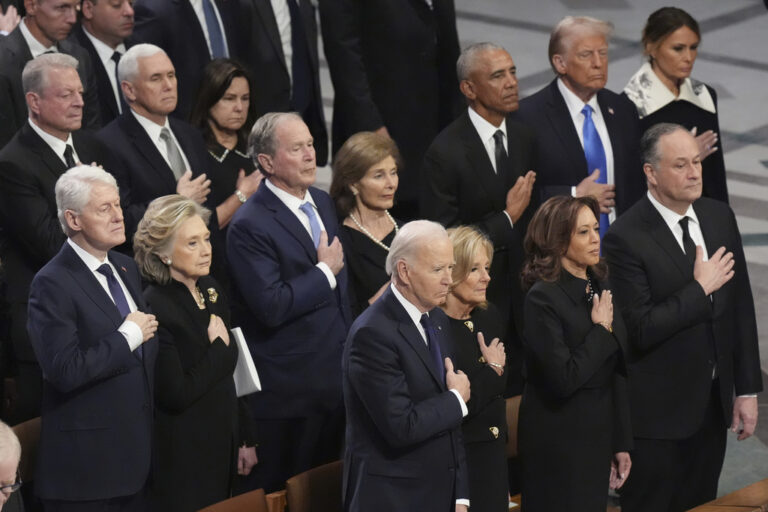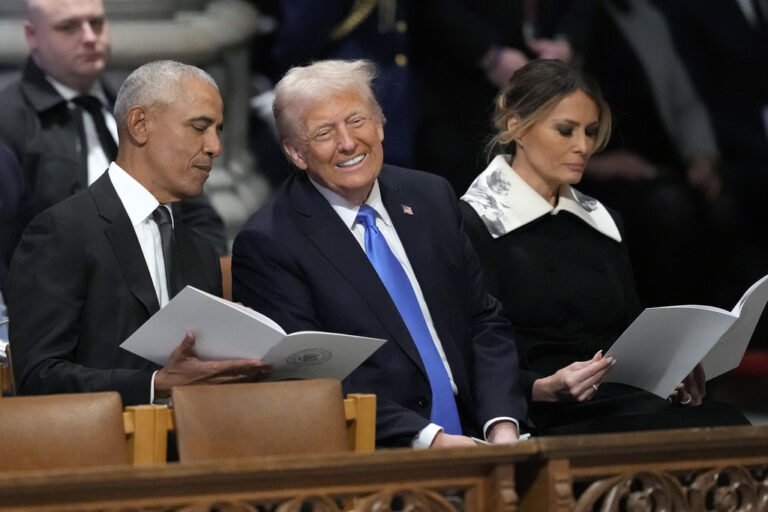 Jake Tapper: “Let’s talk about taxes, specifically about your tax returns. I have to say, I’m kind of surprised that you haven’t gone further on transparency. You released the summary page of your 2014 tax returns. Hillary Clinton has posted on her website the last eight years of her personal returns, all of the returns. Before the New York primary, will you match her? Will you post your full returns for the last eight years?”
Jake Tapper: “Let’s talk about taxes, specifically about your tax returns. I have to say, I’m kind of surprised that you haven’t gone further on transparency. You released the summary page of your 2014 tax returns. Hillary Clinton has posted on her website the last eight years of her personal returns, all of the returns. Before the New York primary, will you match her? Will you post your full returns for the last eight years?”
Bernie Sanders: “You know who does our tax returns? My wife does our tax returns. We’ve been a little bit busy lately. So we will get out as much information as we can. There ain’t going to be very much exciting in that. I get a salary from the United States Senate, you know, there’s not going to be anything new in it that people haven’t seen for the last many years, but we will get it out as soon as we can.”
Tapper: “But nobody has seen them at all, I guess, is the point, and whether or not there’s anything exciting in them –”
Sanders: “No, that is not true. That is not true. Of course, we have released them in the past. Our financial situation, to the best of my knowledge, has not changed very much, but we will get out all of that information as soon as we can.”
— exchange during CNN’s “State of the Union,” April 3, 2016
—
Presidential candidates have no legal obligation to release their federal income tax returns, but there has long been a tradition to do so for the sake of transparency. But candidates have been less forthcoming this year.
Donald Trump, for example, has consistently refused to release his tax returns, saying it would be unwise to do so while his tax filings are under audit by the Internal Revenue Service. Trump released a letter from his tax attorneys saying the IRS is examining his tax filings since 2009, while filings between 2002 through 2008 “have been closed administratively by agreement without assessment or payment, on a net basis, of any deficiency.” There is no prohibition against making public tax returns under IRS review and the letter did not explain why at least Trump’s 2002-2008 filings have not been released.
In a recent interview, Sanders rejected the characterization that the public has not seen all of his full federal tax returns. “That’s not true,” he said, “of course, we have released them in the past.” Is that accurate?
Presidential candidates have consistently released their tax returns since the 1970s. The Tax History Project, a public service initiative from Tax Analysts, has compiled tax returns for presidents, vice presidents and candidates vying for their seats in recent decades. The public can even access President Franklin D. Roosevelt’s hand-written tax returns dating to 1913.
In the 2016 election, two candidates have been notably transparent compared to others: Hillary Clinton and Jeb Bush. This appears to be the one area where Clinton may be immune to transparency criticism.
There is one entry from 2014 available for Sanders on the Tax History Project website: a Form 1040 (a summary of his federal income tax return) and a one-page Vermont state income tax return. The campaign referred to this entry when we inquired about Sanders’s claim.
Sanders and his wife reported a total income of $205,617 in 2014. The vast majority came from his Senate salary ($156,441 after contributions to savings and health insurance). They paid $27,653 in federal income tax and $7,903 in Vermont in 2014.
The couple received another $46,213 in Social Security benefits, and $39,281 of it was taxable.
Sanders has filed annual financial disclosures required of members of Congress, and the publicly available records date to 2012. He also files financial disclosures to the Federal Election Commission as a presidential candidate. But such disclosures are not the same as tax returns. In fact, few senators release their federal tax returns.
That’s about all the details available of Sanders’s federal income tax records. A 1996 article in the Vermont publication “Seven Days” detailed Sanders’s 1995 tax return, when he was mayor of Burlington. Sanders reported $125,843 in total income, according to the article, but it’s unclear how the outlet obtained this information. (It may have been released by Sanders’ mayoral campaign, but the current presidential campaign did not clarify when we asked.)
The publication’s scathing article notes that Sanders had dismissed the idea of charities in his early days as mayor — and that view was confirmed in his 1995 tax return, which showed Sanders donated just 1 percent of his income ($1,369) to charity. “Over the years, Bill Clinton’s taken bigger deductions for dropping his pre-owned Jockey shorts off at the Salvation Army. Can you say ‘Scrooge’?” wrote Peter Freyne, a legendary chronicler of Vermont politics.
During the 2006 Senate race, Sanders said he would release his tax returns if his opponent did so, and his campaign had said it was a “good idea” for political candidates to release their federal and state returns. But there is no indication that Sanders ever released his federal returns during that campaign.
While Sanders rejected Tapper’s assertion that the public has no access to all of Sanders’ tax returns, we have no evidence he has released any other federal income tax return than the Form 1040 from 2014. The campaign confirmed to The Washington Post that it did not release other tax returns prior to 2014.
But the campaign did not respond to further questions about this topic, including our questions about his decision to release only a Form 1040 rather than a full tax return — and why Sanders claimed he released other tax returns in the past.
The Form 1040 is a partial record and a summary, and devoid of details that tell the public more about how he manages his money. In particular, it doesn’t tell the public about his charitable giving or any other itemized deductions. Given that Sanders’ 1995 return indicated he was parsimonious about giving to charities, voters might want to know if his attitude has changed in the last two decades.
And it’s not just Sanders. Among the 2016 presidential candidates who have released their tax returns, only Clinton, Bush and Carly Fiorina have released their full federal returns beyond the Form 1040.
“It’s not a complete tax return,” said Joseph Thorndike, director of the Tax History Project. “The IRS doesn’t think it is, and I don’t think the voters should, either. . . . Ronald Reagan didn’t release just his 1040, and these guys shouldn’t, either. It’s just not an adequate answer.”
Plainly put, Sanders has not released his full federal tax return. The little he has released was the Form 1040 in 2014, which is a summary of his tax filing that gives a snapshot of his finances — not what is considered a full tax return. The Sanders campaign confirmed to The Washington Post that it has not released other tax returns prior to 2014, which is a sharp contrast to Clinton’s voluminous release of her complete tax returns.
Tapper correctly questioned Sanders, asking why “nobody has seen them [federal tax returns] at all.” Yet Sanders interrupted Tapper to reject the notion, insisting: “That is not true. Of course, we have released them in the past.” But this answer is nothing remotely close to the little federal tax records he has released to the public.
Sanders says there is nothing in his 2015 tax return that is different from what the public has “seen for the last many years.” This indicates he may have been referring to the information filed in his financial disclosures. But that’s not the same as a full federal tax return — and as a longtime member of Congress, Sanders should know that.
Sanders is not required to release his tax filings, and he clearly decided to keep them confidential. That’s his choice. But it doesn’t excuse him from misleading the public to believe otherwise with this false claim.
(c) 2016, The Washington Post · Michelle Ye Hee Lee










